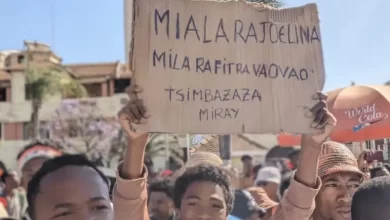African States Withdrawing from ECOWAS: Legal Implications for Regional Trade and Security
Authored by: Peter Owusu F.

In January 2024, Burkina Faso, Mali, and Niger—three West African nations currently under military rule—announced their immediate withdrawal from the Economic Community of West African States (ECOWAS). This decision sent shockwaves across the region, raising critical questions about the future of regional integration, trade, and security cooperation.
ECOWAS, established in 1975, has been a cornerstone of economic and political stability in West Africa, facilitating free movement, trade, and collective security measures. The withdrawal of these three nations—all key players in the fight against jihadist insurgencies—poses significant legal, economic, and security challenges.
This article examines the legal implications of this withdrawal, its impact on regional trade, and the potential security ramifications. It also explores expert opinions on whether this move signals a broader decline in ECOWAS’s influence or a temporary rupture in regional cohesion.
Background: Why Are Burkina Faso, Mali, and Niger Leaving ECOWAS?
The three Sahel nations have been governed by military juntas following coups in recent years:
- Mali (August 2020 and May 2021 coups)
- Burkina Faso (January and September 2022 coups)
- Niger (July 2023 coup)
ECOWAS responded to these unconstitutional changes of government with sanctions, suspension of membership, and threats of military intervention (particularly in Niger). The juntas accused ECOWAS of being influenced by Western powers (particularly France) and failing to support their fight against terrorism.
Their joint statement cited “illegal, illegitimate, inhumane, and irresponsible sanctions” as a key reason for withdrawal, framing ECOWAS as a tool of foreign interests rather than a body serving African sovereignty.
Legal Implications of Withdrawal from ECOWAS
1. Treaty Obligations and Withdrawal Process
Under Article 91 of the ECOWAS Revised Treaty (1993), member states must provide one year’s written notice before withdrawal takes effect. The three nations declared an immediate exit, which contradicts ECOWAS protocols.
Legal Consequences:
- ECOWAS may reject the immediate withdrawal, arguing that the one-year notice period is binding.
- If the withdrawal is recognized, the three states lose access to ECOWAS institutions, dispute resolution mechanisms, and trade benefits.
- They may still be bound by pre-existing agreements (e.g., debt obligations, infrastructure projects).
2. Impact on Regional Trade and Economic Integration
ECOWAS promotes a free trade area, a common external tariff, and the free movement of people and goods under the ECOWAS Trade Liberalization Scheme (ETLS).
Potential Trade Disruptions:
- Loss of tariff-free access: Exports from Burkina Faso, Mali, and Niger may face new tariffs in ECOWAS markets.
- Disruption of supply chains: These landlocked nations rely on ECOWAS ports (e.g., Côte d’Ivoire, Togo) for imports.
- Informal trade at risk: Cross-border trade, which constitutes a large part of their economies, could be severely affected.
Expert Insight:
Dr. Folashadé Soulé, an economist specializing in West African trade, warns:
“If these countries leave ECOWAS without alternative arrangements, their economies—already strained by sanctions and insecurity—could face further shocks. Niger’s uranium exports, Mali’s gold trade, and Burkina Faso’s agricultural sector all depend on regional markets.”
3. Security Implications: A Blow to Counterterrorism Efforts
The Sahel region is the epicenter of jihadist violence, with groups like JNIM (Al-Qaeda) and ISWAP (Islamic State) expanding their influence. ECOWAS has supported the G5 Sahel Joint Force (which includes Burkina Faso, Mali, and Niger) and coordinated regional security strategies.
Possible Security Fallout:
- Reduced intelligence-sharing: ECOWAS mechanisms like the West African Police Information System (WAPIS) may no longer include these states.
- Weakened military cooperation: Joint operations (e.g., Accra Initiative) could suffer.
- Increased reliance on external actors: The juntas have already turned to Russia (Wagner Group) and formed the Alliance of Sahel States (AES), a mutual defense pact.
Security Analyst Kabir Adamu notes:
“ECOWAS’s inability to mediate this crisis weakens its credibility. If the AES deepens military ties with Russia, it could lead to a Cold War-style proxy conflict in the Sahel, further destabilizing the region.”
Alternative Alliances: What’s Next for Burkina Faso, Mali, and Niger?
The three nations have signaled a shift toward closer ties with Russia and possibly BRICS. They have also established the Alliance of Sahel States (AES), which could evolve into a competing bloc.
Possible Scenarios:
- Formation of a new regional bloc: A Sahel-focused economic and security union.
- Strengthened ties with non-Western powers: Russia, China, and Middle Eastern states may fill the void left by Western and ECOWAS partners.
- Reintegration under certain conditions: If civilian rule is restored, ECOWAS may re-engage.
Is ECOWAS Losing Its Grip on West Africa?
The withdrawal of Burkina Faso, Mali, and Niger represents the biggest crisis in ECOWAS’s 49-year history. It exposes:
- Declining influence of ECOWAS in managing political crises.
- Growing anti-Western sentiment and resistance to perceived neo-colonialism.
- A potential realignment of African geopolitics, with new alliances outside traditional frameworks.
Final Thought:
While ECOWAS remains a dominant force in West Africa, its failure to reconcile with these three states could encourage further fragmentation. The coming months will determine whether this is a temporary rupture or the beginning of a new, more divided West Africa.




